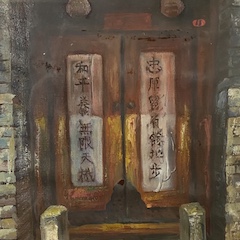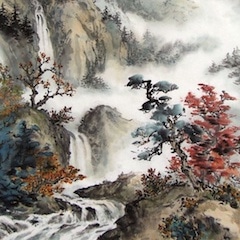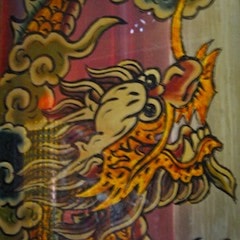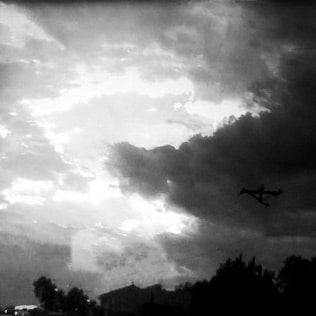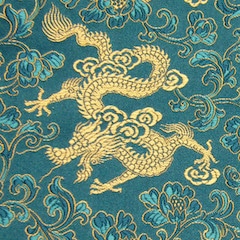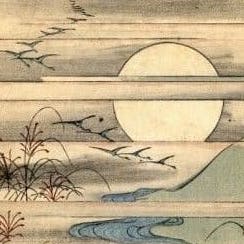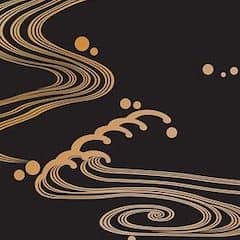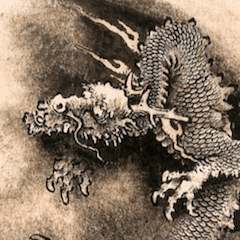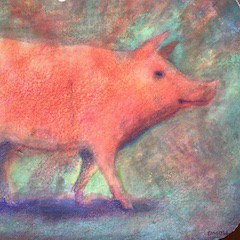Cultivation
129 Currents, Culture and Conversation Through Time • Volker Scheid
Many of us like to think we are connected with doctors throughout time, that we practice the same medicine in a continuous flow from the days of Huang Di down to this modern moment. It’s a lovely narrative. One that our patients often think about...
123 Creativity, Presence and Attention • Michael McMahon
The practice of medicine is not completely about what we do, it’s also informed by how we are. How our presence, perception and allowing ourselves to abide in that space between knowing, sensing and being can invite a quiet, non-rational part of ourselves into the clinical encounter.
Michael McMahon, like many of us, did not initially set out to become a Chinese medicine practitioner. It was more a process of discovery— of a kind of feeling your way in the dark. It was a following something that lead to the next, which in turn opened a new opportunity. Not unlike the threads we follow in clinic that take and our patients to surprising places.
Listen in to this conversation that reminds us there is something quiet and still that helps to inform the “doing” of our work.
120 The Archetypes of Confucius and Carl Jung • Pia Giammasi
Archetypes are deep influences that all humans share. They give us a glimpse into the complicated landscape of our psyche. They can live in the light or influence from the dark. Carl Jung had a lot to say about our intrapsychic world, how these influences are shared across culture and time, and how they manifest in personal and societal behavior. And while they are separated by the distance of culture and thousands of years Confucius had a lot to say that rhymes with the Jungian ideas on Being, Doing, Thinking and Feeling
118 Daoism in the Modern World • Josh Paynter
Daoism and Daoist thought is something that many acupuncturists have been exposed to. It might have been part of what launched our interest in studying medicine. And perhaps you’ve had the experience of reading books like the Dao De Jing and come away more with a sense of confusion than clarity. It’s challenging for us as modern westerners to grasp the meaning of writings that have come to us from across the expanse of time, culture and language.
116 Qi Anatomy • Brenda Hood
The way we make sense of structure helps us to understand function. Drawing lines and divisions helps us to understand parts. But a keen understanding of the parts does not always help us to see the whole of the functioning of those parts. The...
115 Beyond The Visible – Electromagnetic Radiation and Health • Brandon LaGreca
Chinese medicine reminds us that we are one part of a complex, interdependent and ever evolving ecosystem. That we both influence and are influenced by the world. Our toolmaking ability has wrought remarkable changes on the world, and on ourselves.
114 Wisdom Guild: Listening to Our Practice • Njemile Carol Jones, Laura Christensen, Esther Platner
What gets us started is not what sustains us over the long haul. The energy of beginning is essential at the start of any new endeavor. But what got us to here, will not get us to there.
It’s easy to think that we are broken because what brought us success does not help us in managing success. Nor does it help us to move through the stages of development as we age and face the challenges slowing our practice down, passing it along or letting go of it altogether.
113 Ripples in the Flow: Pulses, Nanjing and the Questioning Mind • Z'ev Rosenberg
The classics are helpful not just because they contain pointers to how medicine works. They are helpful because of the discussions they have generated amongst practitioners over the twin distances of time and space. They are a kind of thread that connects us with the doctors of the past who have gone to this well for the wisdom within.
Listen in to this conversation on the pulse as seen through the perspective of the Classic of Difficulties, how the principle of 理 (coherence) shows up in the work we do, issues of free will and that troublesome question of what constitutes a cure.
109 Spirals, Stems and Branches: The Structure of Unfoldment in Time and Space • Deborah Woolf
Stems and Branches are old Chinese science. Our medicine touches on it, but most of us rely on the more modern perspectives for our clincal work. The Stems and Branches speak to a perspective of the universe and our place in it that is foreign to our minds not because of language and culture, but because we live a world that focus more on humanity than cosmos.
100 Anniversary Show: Art, Postcards, Persistence and Practice • Diana Moll
Last year for the first anniversary of Qiological I invited a listener of the podcast to join me for a conversation, this year I did the same. Part of the reason is that I love hearing from listeners of the show. And the other part is that we all have something to share with each other, and I especially love talking to practitioners that you might not know.
I love talking to people that have been working away in their clinics, usually without fanfare or desire for public recognition. And have through their experience learned something of our medicine, and how it helps people.

